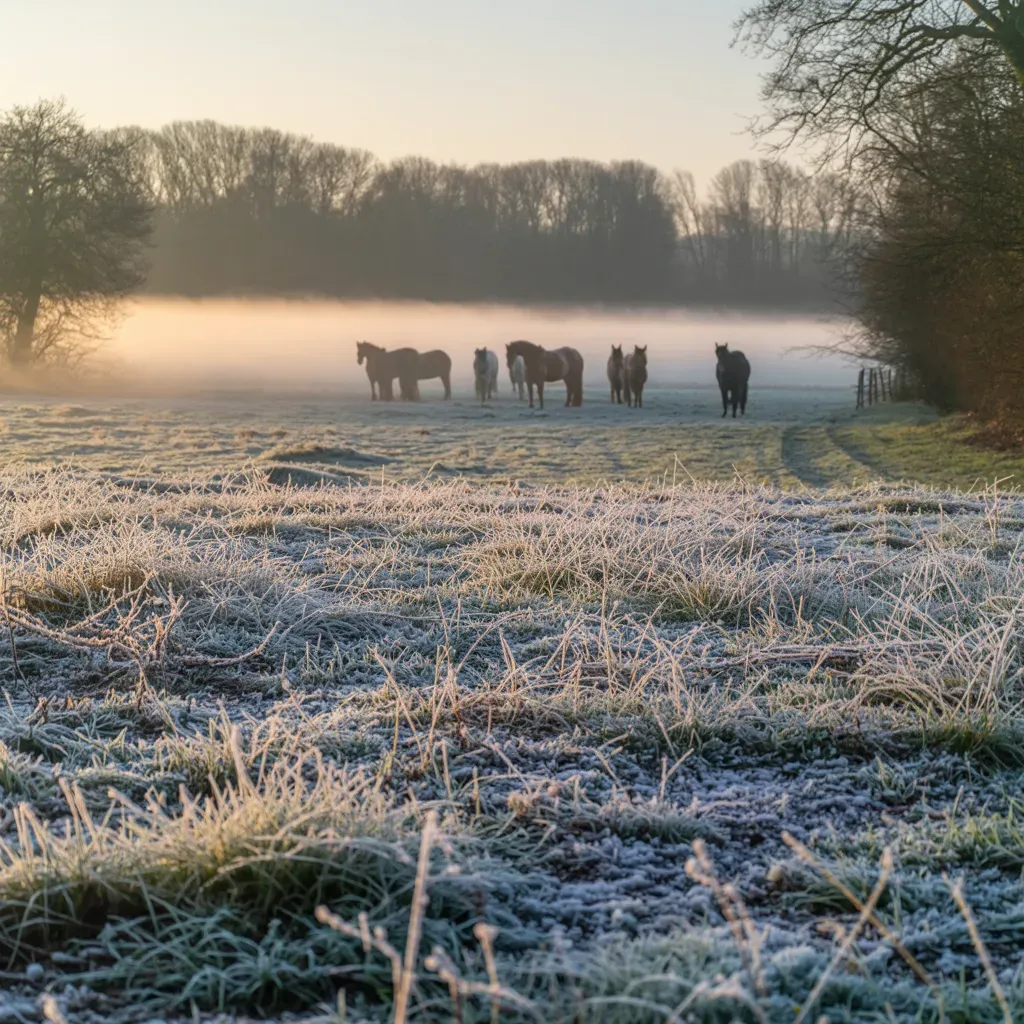Hindgut Ulcers??? - They're a myth. Seriously.
“There’s no such thing as hindgut ulcers.” Dr Eleanor Kellon
Tis true; the hindgut environment can become acidic but this is nothing to do with acid. The term ‘hindgut acidosis’ is all about the pH value of the hind-gut (aka large intestine) environment, i.e. acidic or alkaline, but you won’t get actual ulcers because there are no acid-secreting cells in the hindgut system.
The horse’s physiology as a hindgut fibre fermenter has an absolute requirement for forage fibre, with its body's chemistry balanced by correct mineral ratios. The pH of the hindgut completely relies on this, but in our modern day with the overwhelming choice of bagged feed manufacturers promising all kinds of health miracles for our horses, yet usually filled with poor-quality, pro-inflammatory, non-species appropriate ingredients, we risk altering the hindgut pH depending on what feed choices we make.
Worst case, these poor quality, inappropriate feeds can cause extreme acidosis with severe inflammation; you’ll know it as the entire hindtgut area becomes seriously compromised and horses present very ill with fever, colic, diarrhea, even sepsis. For the full story on these ingredients (in many well-known brands), see our Why what we feed has to be right chapter in our 'Feeding our Horses' section.
These days, a diagnosis of ‘hindgut ulcers’ seems to be the new trend - it seems that even horses on predominantly or entirely hay diets are being diagnosed with ‘hindgut ulcers’, usually based on vague and totally nonspecific symptoms such as not liking their girth area touched or right hind pain/lameness.
If there is ‘ulceration’, as in an open sore or erosion in the lining of the intestine, it’s more than likely associated with the following, all of which can be addressed:
- SIBO – Small Intestine Bacterial Overgrowth, where there’s more of the pathogenic pro-inflammatory gut microbes in the microbiome than the beneficial ones, and they’re doing a merry dance of damage down there, very often leading to Leaky Gut syndrome, which is fast becoming a new epidemic. See our separate page on Leaky Gut, and for an eye-opening look at the importance of maintaining a healthy microbiome, which is literally the body's CPU and runs everything, see our page ‘The Microbiome – the Missing Organ?’:
- A significant worm burden, i.e. tapeworm or bots’ attachment sites, and/or migration/emergence of small or large strongyle larvae.
- Exposure of the intestinal tract wall to NSAIDs (usually bute).
So, what if you've addressed the above, but your horse is still reactive, twitchy, stiff and/or generally grumpy? It could be that the bagged feeds you're feeding are the cause, not only due to the C.R.A.P. ingredients (not me being potty-mouthed - stands for Carbs, Refined, Artificial, Processed), but also possibly due to unbalanced mineral ratios in its composition, specifically the Ca:Mg ratio. Seriously, some feed companies out there will bend over backwards to convince you that their Ca:Mg is balanced but the reality is a very different story.
There are also many feeds manufacturers who add higher iron in their feeds than Mg – completely unnecessary for our UK grasslands which are already overly high in iron, but for a feed company to consider Mg as a trace mineral when it’s actually a major mineral is wrong, and it should be provided as such. So, if your horse is still showing signs of grump, it may be that you need to be looking at mineral balancing, or getting your feed/hay analysed for deficiencies or over-compensations. Hind-end stiffness and general high muscle tone is another symptom of Mg deficiency that is very common in horses.
Pulling this altogether, It’s about feeding the right food, as in what the equine gut should be eating and has evolved to digest, i.e. clean, chemical-free, non-GM, species-appropriate, natural fibre - not legumes, peas, beet and maize - and making sure there’s a healthy colonisation of the beneficial microbes that do all the hard work of fermenting that fibre in the hindgut. It’s also a good time to be looking to see if there are any lifestyle stressors that can be removed, as emotions also affect gut function.
Everything starts with the gut, but everything begins with the microbiome. From the minute food enters the mouth and is chewed, digestive enzymes start the digestion process, right the way through the digestive track via the foregut where the acid starts to break down the food bolus, then into the small intestine which is where the digestion, assimilation, and absorption of nutrients occurs via the beneficial microbes in the microbiome, then onwards into the large intestine where the fibre is fermented before the waste is then turned into perfect poo 😉
Maybe consider a gut clean-up - see our Detoxification page - and focus on the microbiome. This will also help reboot the immune system, as again, the microbiome is totally responsible for immunity.
Originally written 21.5.20











